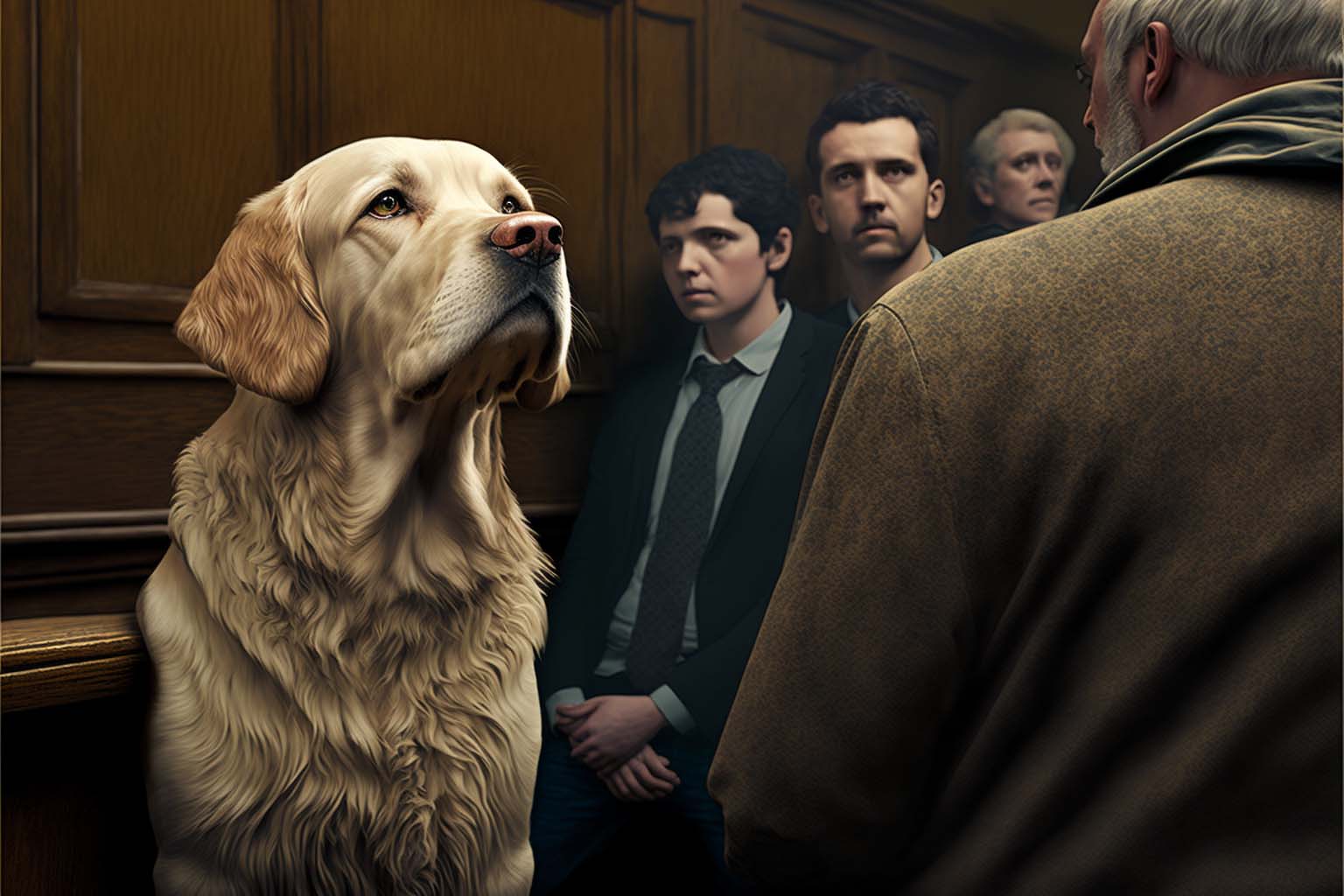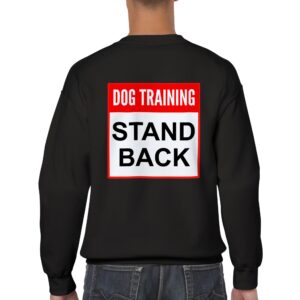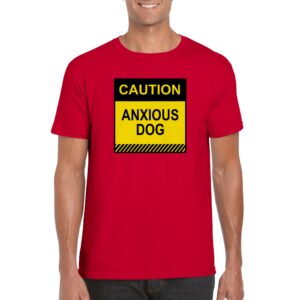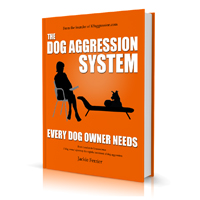Your cart is currently empty!
LEGAL ISSUES AND AGGRESSIVE DOGS

It is difficult to go into legal issues in depth because laws change from area to area, and from time to time. In particular if you have an aggressive dog, or you or your pet has been bitten, you should get to know the laws that pertain to your area. However, here are a few things you should consider when it comes to dog and legal issues.
[accordion align=”” numbers=”true” first_one_open=”false”]
[pane title=”Dogs who have threatened or caused injury”]
Dogs who have threatened
This is a sticky grey area. Dogs have few options in situations where they are trapped. They often don’t have the freedom to put space between them and the things that is disturbing them and in most cases people don’t know the signs that indicate that a dog is feeling stressed. One only has to look at the numerous videos of babies and dogs to know that people really don’t know the signs or they would never had put their babies in such danger. A dog might be showing these signs long before a bark, growl or snarl happens.
However, many laws state that owners need to to make sure their dogs not only don’t bite, but also don’t threaten others. The responsibility is on the dog owner to make sure that their dogs never even get the chance to threaten anyone. Dog aggression even inside the home could lead to prosecution. Dog Bite Law, although American based only, is an excellent resource for both dog owner and victim.
Dogs causing injury
It is always a serious thing when a dog injures another person or another animal. In many areas, a victim does not need to prove that the dog owner were neglectful in any way to be held responsible. Things can get worse if it can be proven that the injury was preventable. If it can be proven that the dog has previously bitten, or acted like the dog wanted to bite, punitive damages may be added to the case. A victim might even be able to get compensation if the dog was being provoked or the person that the dog injured was trespassing. Dog bites can affect insurance, as home owner insurance often covers claims. Victims can sue up to years after the incident.
It is important to keep in mind that dogs can injure others besides biting, so a muzzle will not always help. If your dog has bitten, or in case your dog bites it would be a good idea to look at the Dog Owners information on Dog Bite Law. Although this is an American based site, there is still good information on what to do if your dog bites someone, etc., for people of all countries.
If you dog is at a board and train facility look into your local laws, including your city, state/province, and national laws. There are laws that protect people, and laws that protect animals.
In some cases, a trainer might suggest that you are responsible for any harm your dog does while on his premises. Check the legalities before handing your dog over. Even if the facility or consultant can assure you that everything will be handled safely, accidents happen. Be prepared and understand what you are liable for.
If you are a trainer, groomer, dog sitter, or veterinarian that gets bitten by a dog, you will need to look into the laws in your area. Not all places allow for dog professionals to be compensated, although there are sometimes ways around it. Get familiar on what the waivers and agreements are for your particular situation.
[/pane]
[pane title=”Unjustified Accusations”]
Unjustified accusations
Having a dog can be similar to having a child in that you may feel very protective about your dog. You may even be in denial about your dog’s behavior, and what seems like a dog just being a dog, or a dog just being “grumpy” to you, may seem like outright threats to another person.
Hostility is going to be expected if your dog is a nuisance and/or a threat. Even the most friendly dog can be dangerous to someone who doesn’t know any better. People that are afraid of dogs should be able to live their lives without being threatened by yours. We live in a world where people are prioritized over dogs.
But in some cases, people give dog owners a hard time, especially if they own a breed or a dog that looks like a breed that has a negative association. If you are encountering unjustified hostility, you might find Dealing with Hostility on Dog Bite Law, helpful.
[/pane]
[pane title=”Dog Ownership and Adoption”]
Dog ownership
Some laws look at dogs as personal property. Make sure your dog has all necessary microchipping, tattooing, etc. to identify you as the owner. If there is a dispute call the police. They should be able to help you get your dog back, while keeping conflict to a minimum. No consultant has the right to withhold your dog from you, no matter what the circumstances.
Adoption
If you are giving your dog up for adoption to a facility or organization, you should ensure that you fully disclose all issues and incidences as you may be held liable if it can be proven that the dog has a history that you did not reveal.
If you are concerned about what may happen to the dog after adoption, you might consider negotiating a co-ownership, and draw up a contract about this. Anything else you add in a contract will have validity and and will allow you to be involved with your dog future. If you eventually feel the new owners are not treating the dog as you wish, you may have power in court to remove the dog. You can also insist that the dog not be given away or put down without your permission.
The downside is as a co-owner you are legally liable which could potentially be an issue with an aggressive (or any) dog, especially if you do not have the dog in your possession. It would be a good idea to discuss options with a lawyer. Some laws make the person housing the dog, or even just the property owner liable in a situation.
Generally a new owners might happy to keep in touch with you or they might be concerned that you will have a change of heart or become a nuisance. If you wish to have contact with it with its new owners, get a contract stating this in detail before giving him up. Essentially who ever owns the dog can do what they wish, however judges will often rule in favor of what is most reasonable.
You could consider including in the contract that you have a certain amount of time to change your mind before signing over ownership. More often than you would expect, an owner wants their dog back only to find out it is gone. However, this may send up red flags for any potential new owner that you are not sure of your decision, and therefore they should not get attached.
Keep all paper work, invoices, receipts and contracts. Do not make a rash decision.
[/pane]
[pane title=”Contracts and Agreements with Dog Professionals”]
Contracts and Agreements with Professionals
A contract that is already prepared is always written to protect the party who supplied it. It is the written evidence of an agreement. In a court of law a contract will generally supersede a verbal agreement. However, in a civil court of law, what is most reasonable will generally be held in favor, even if it goes against a contract. In lieu of a written contract a verbal agreement is just as binding. However, it can be more difficult to produce evidence of the agreement, which is why we urge you to get what you verbally agree to in writing. It does not have to be formal.
In most cases the professional most dog owners consult are above-board. But unfortunately, there are still a few that are not. Like in all areas, you will have scrupulous and unscrupulous people.
- Ask to see a copy of the contract before deciding to go with the consultant/training facility.
- ALWAYS take it home or request a copy be mailed to you before signing it or leaving your dog at a board and train facility
- Get an objective person to read through it, or even consider asking about things that may bother you on other egroups or forums online. A lawyer is the best person to consult, but may not be practical.
- Look at a contract as a negotiation. If you feel something should be included that isn’t, ask the consultant/facility representative to add to it.
- Have the consultant and/or someone in authority to sign any changes that are made, along with signing it yourself on all copies. Don’t be afraid to modify the contract.
- If you have any questions whatsoever, this is the time to ask them!
- If you do choose the consultant at a board and train facility, ensure that you and the consultant have a signed copy BEFORE the dog is left behind..
Too often we pass up reading contracts because we are desperate for the service, and feel that it is just a formality or we couldn’t change them anyway. However you are your dog’s only advocate. If a facility or consultant won’t modify the contract to your reasonable specifications, you are right to be concerned.
[/pane]
[pane title=”Breach of Contract”]
Breach of Contract
If a trainer or consultant refuses to reimburse money that you feel is rightly owed to you, because of a breach of contract, etc., depending on where you live you may be able to pursue the matter through the Better Business Bureau, (in the United States and Canada) who will try to resolve the dispute with no cost to you.
If you don’t have access to a Better Business Bureau you may wish to pursue it through small claims court. In all cases, you should ensure you have proof
In some cases, people feel embarrassed that they were duped and don’t want to pursue it. However, it is likely that the consultant has a pattern of “dirty dealings”. Small claims court fees are less than regular court and you will not need a lawyer. Also, if you are truly in the right, and can prove it, you should get your money back possibly including the court fees. Not only will you feel better about the situation, but you may stop it from happening to others.
[/pane]
[pane title=”Abuse or Neglect”]
Abuse or neglect
If you suspect any kind of neglect or abuse has occurred with your dog, WE URGE YOU to get your dog to a vet, and retain paper work of the vet’s diagnosis. Take this and a report to your local humane society, cruelty organization and/or the police. This is imperative. People who harm animals usually continue doing so. Depending on where you live the laws may not protect animals in the same way as people. Take action immediately.
If you suspect a consultant may be causing suffering to or neglecting another animal, do not confront the person. Call your local humane society, cruelty organization and/or the police.. Most organizations have inspectors to investigate. However, in many areas abuse or neglect can be difficult to prove depending on how the laws are worded. The more evidence you can gather, the better.
However, note that in some area, investigators do not have the right to go inside of a person’s home without a warrant.
What is a “responsible dog owner”?
[/pane]
[pane title=”Obtaining Proof for Court or Investigations”]
Proof is not always as easy to obtain as you might think. For example, in a neglect case, you might have to prove that the person knew what they were doing was in fact neglectful. Getting proof of what is in a person’s head can be understandably very difficult. in some cases, a victim may have to prove that the action or injury was a result of a bite or the dog owner may have to prove an injury such as a bruise was there before any altercation. In other cases, the fact that someone was injured may be enough, and proving a bite occurred was not necessary.
It is best to get statement as soon as possible while memories are still fresh. In an injury or an abuse case, make sure you get photographic and/or video evidence with the date. Keep all physical evidence such as receipts, contracts, invoices, veterinary or doctor bills and so on. Credible eye witnesses can be very compelling in court but it can be difficult to get people to testify against others.
In some cases, you might have to enlist the services of a credible professional for court. For example, if someone is trying to prove that your dog showed previous aggression toward another dog, you may need a credible professional to testify that the growling wrestling behavior your dog does while they play, is not in fact aggressive behavior that someone witnessed. Keep in mind that the credibility of the professional will be thoroughly scrutinized in regards to whatever testimony or evidence is produced.
Some facts are more sufficient than others in proving whether it could have been foreseen that a dog had the potential to be aggressive and that the situation was preventable. A dog that chases people or cars may not. But a dog who is kept as a guard dog might, or a dog that has previously bitten a person that provoked it.
[/pane]
[/accordion]
ADVERTISEMENT

Keep people away with our Stand back shirts

Anxious Dog Shirts only available in our shop

